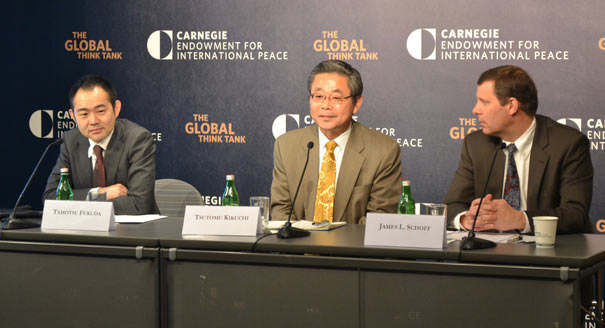Registration
You will receive an email confirming your registration.
In an unprecedented display of proactive foreign policy, Japanese Prime Minister Shinzo Abe visited all ten ASEAN nations during his first year in office and hosted a special ASEAN leadership summit in Tokyo. Tsutomu Kikuchi and Tomotsu Fukuda examined Japan’s evolving foreign policy vis-à-vis ASEAN and considered whether it constitutes a new diplomatic strategy preoccupied with China or a policy more focused on the rise of ASEAN. The speakers also considered implications for the U.S. rebalancing to Asia and Japan-China relations. James L. Schoff moderated.
Tsutomu Kikuchi
Tsutomu Kikuchi is professor of international political economy of the Asia-Pacific at Aoyama-Gakuin University. He has also been an adjunct fellowat the Japan Institute of International Affairs (JIIA) since 1987. He is a specialist on Japanese foreign policy and Southeast Asia.
Tamotsu Fukuda
Tamotsu Fukuda is a professor at Toyo Eiwa University focused on Japan’s foreign and security policies involving ASEAN. He previously was a fellow at JIIA studying Asian regional security and multilateralism in the Asia-Pacific.
James L. Schoff
James L. Schoff is a senior associate in the Carnegie Asia Program. His research focuses on U.S.-Japanese relations and regional engagement, Japanese politics and security, and the private sector’s role in Japanese policymaking.
